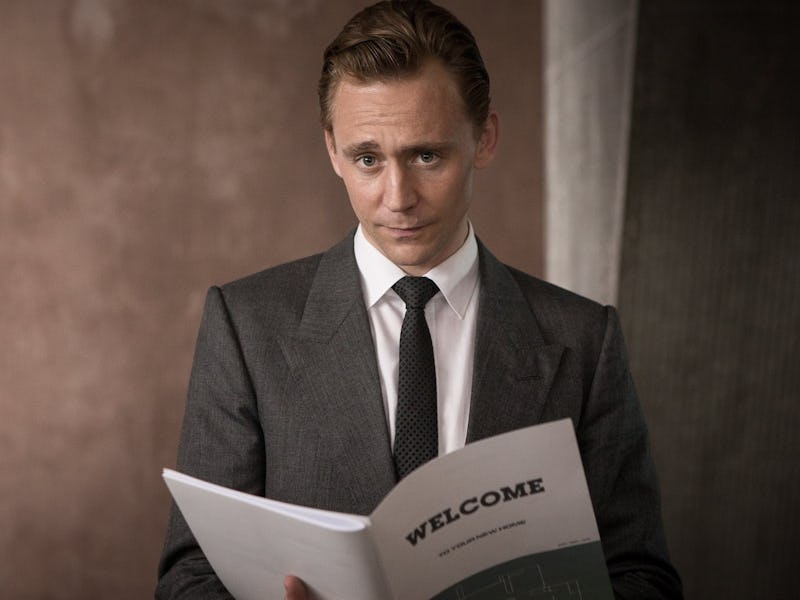Science Fiction Will Consume the Superhero Industry and Become the Genre to Beat
Tom Hiddleston sees the writing on the wall: Loki is out; 'High Rise' is in.

Superhero movies have dominated the box office for longer than anyone could have reasonably expected and the half-life of the trend is guaranteed. A crowd of masked men and a handful of masked women have already received the green light from studio heads. The superhero craze won’t end in the next three years because that’s not how production schedules work. But it will end eventually and when it does, it will leave a vacuum, a thing nature abhors and capitalism simply won’t abide. What will happen then? The genre the birthed superheroes will reassert itself and become the focus of all that blockbuster money. Science fiction will return.
Superhero movies really took off as the recession hit and American adventurism in the Middle East died down in 2008. Iron Man and The Dark Knight were massive hits because we needed heroes, but we weren’t about to buy into a shiny happy technicolored nipple-suit. Nolanization allowed the American public to invest meaning into savior figures without feeling like emotional capital was at risk and, more to the point, without fear of moral complication. Whatever else Christian Bale’s version of Batman was, he was consistent and uncompromising. He fundamentally didn’t care what the people of Gotham thought. He did the hard thing. Marvelization was a bit different, but not dissimilar. Tony Stark was a man driven by his own convictions. He was just better than Bruce Wayne at parties.
As comic book scholar Ramzi Fawaz told Inverse, “The American military power around the world is more and more visibly violent, unfair, and imperialistic. Superheroes make us feel better about some of those political realities.”
As it becomes clear that the problems facing our country currently have more to do with cultural rifts, heroes are starting to resonate less. One cannot punch a nation out of gridlock and divisiveness. Entertainment will be forced to offer grander, or stranger, or more experimental alternatives. This looks like science fiction in myriad form.
Science fiction is by no means a defunct genre: This year alone, we’ve seen plenty of movies, like Ex Machina or The Lobster, that belong in the awards conversation. Some of these films have been quiet and weird while others — yes, Star Wars happened — have been the opposite. What they all have in common is that they offer a radical vision of disrupted societies.
This movement doesn’t need a poster boy, but it has one anyway. Fittingly, it’s Loki. Tom Hiddleston rose to fame playing evil in the Thor movies and The Avengers, but he’s pivoting to science fiction with High-Rise, a batshit-looking film based on a 1975 novel by J.G. Ballard, who gave us the modern YA movement without ever once writing anything vaguely appropriate for children.
High-Rise is about class and disease and what happens when the structures we build don’t protect us from each other. It does not posit force as a viable response to chaos. It will make a lot of people very nervous because it will resonate.
Intriguingly, Hiddleston isn’t the only hero sneaking away to do science fiction. Chris Evans, who is shackled to Marvel for all eternity as Captain America, snuck out to do Snowpiercer, or Horizontal High-Rise as it will be known going forward. Scarlett Johansson pulled off the Black Widow duds to do both Her and Under the Skin. Her next project is a cyborg thriller.
The actors are realizing that masks cut into your face after a while, but don’t cut to the core of the social issues at the center of our national — and in many ways global — debate. Science fiction has been more insidious over the last decade, reaching into prestige indies and positioning itself to take over tentpole season. That ends soon. The subtext is becoming the text. We need to talk about the future —and we will start that conversation very soon.